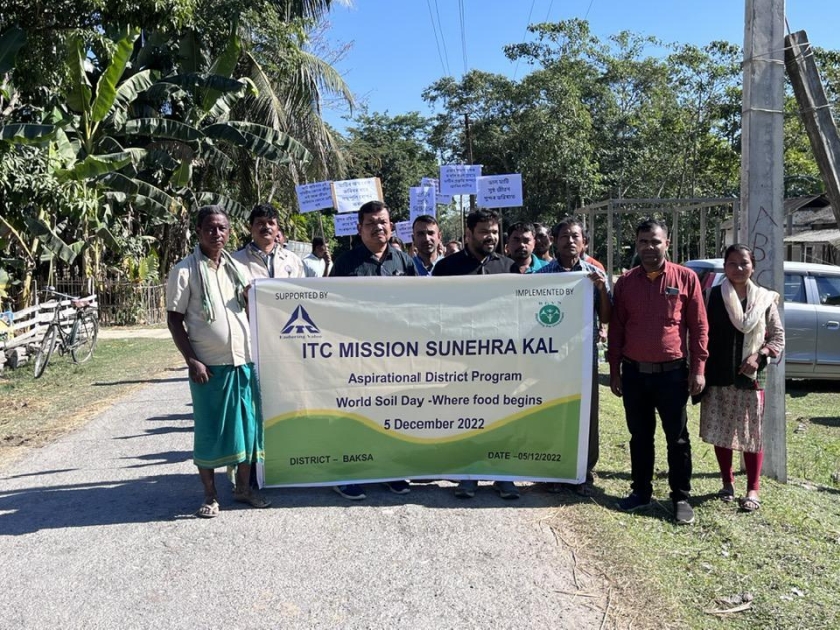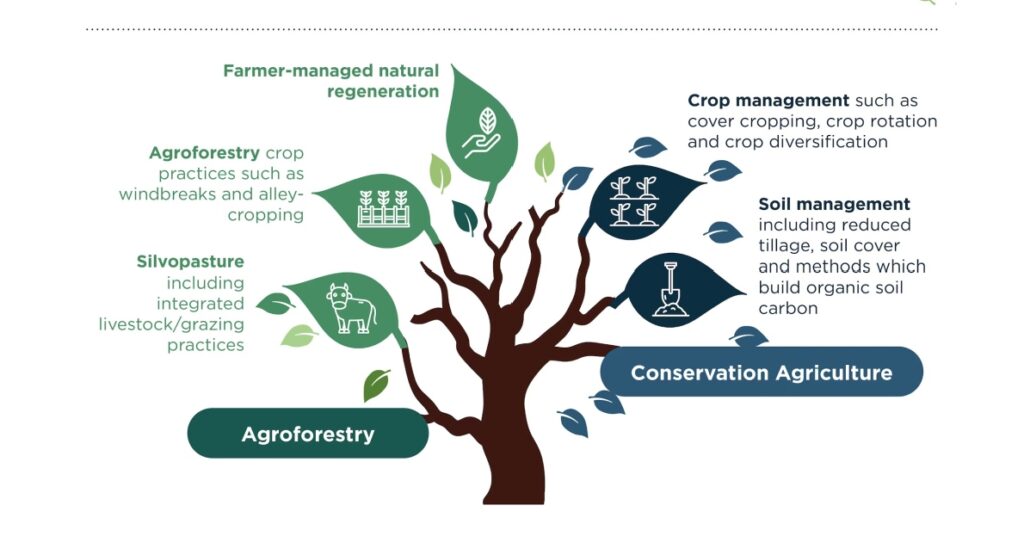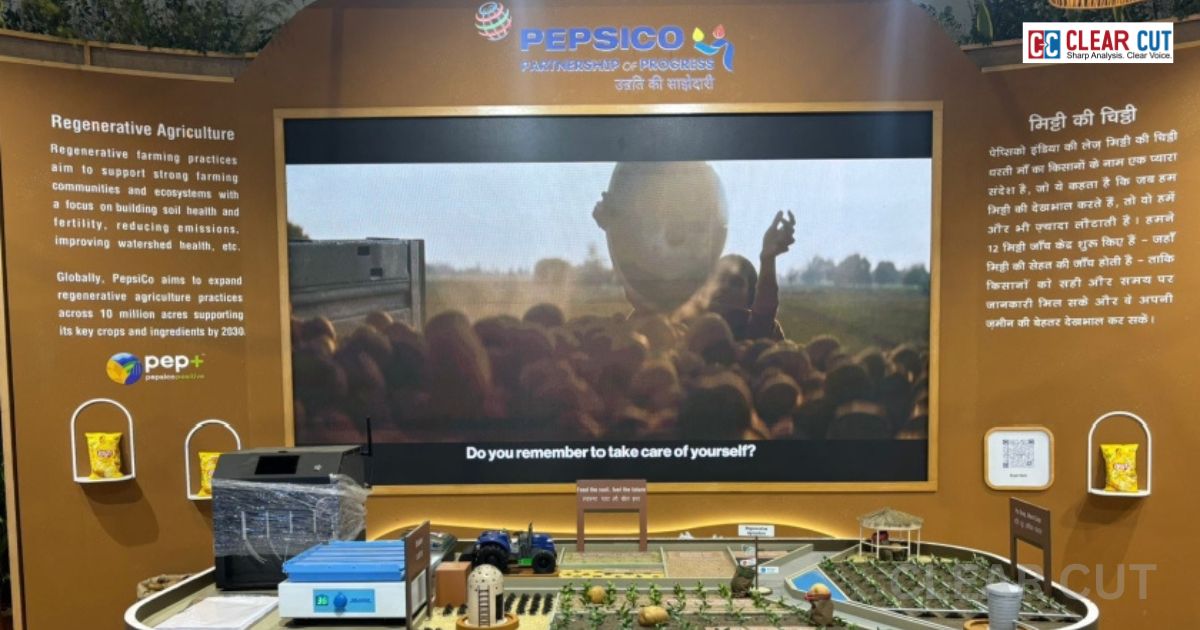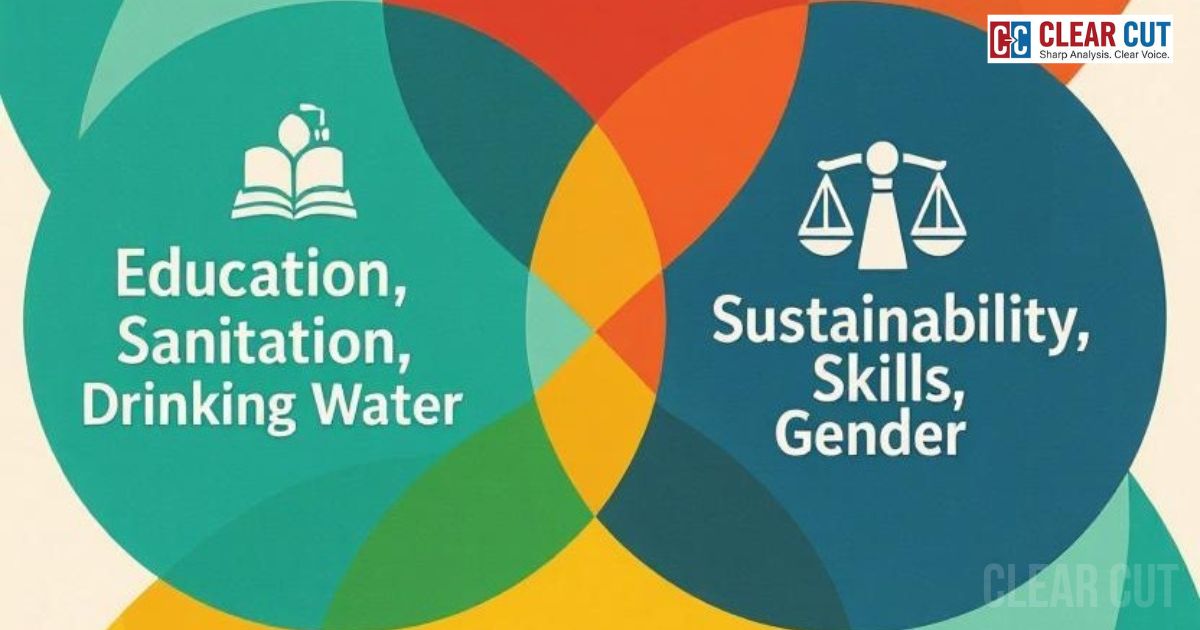Photo Credit: Pepsico India
Clear Cut CSR Desk
New Delhi, UPDATED: Oct 07, 2025 03:27 IST
Written By: Antara Mrinal
In the peaceful rhythm of India’s countryside where the sun rises over green fields and the earth exhales under hardened hands a new tale is spreading its roots. It is a tale of restoration. Not by machines or chemicals, but by attention, patience, and cooperation. It is regenerative agriculture, and in India, it is being supported by an unexpected force — corporate boardrooms.
A Return to Ancient Wisdom
Regenerative agriculture is not new. It is an ancient wisdom rediscovered that the earth returns what we give to it. It calls on us to produce without violence, but with reverence. Rather than depleting the soil of its fertility with chemicals and monoculture, farmers enrich the soil with compost, crop rotation, and natural pest management.
Healthy soil, like a healthy person, can cure itself. It retains water longer, resists erosion, and grows stronger plants. When we nurture the soil, it silently nurtures us as well.
This harmony was lost for many years. But today, a new generation of farmers, led by CSR programs, is finding ways to restore it.
When Companies Step Onto the Farm
Big businesses are learning that responsibility does not stop at the gates of their factories. It starts in the fields that provide their raw materials. A case in point is PepsiCo India, which has made regenerative farming the cornerstone of its Partnership of Progress initiative.
Working with farmers in Uttar Pradesh, Maharashtra, and Punjab, PepsiCo educates them about crop rotation, composting, and micro-irrigation techniques.
Under Project Mitti Didi, the company has established Mitti Jaanch Kendras (soil testing facilities ) so that farmers are able to comprehend what their soil actually requires.
Worldwide, PepsiCo has committed to transitioning significant acres of farmland to regenerative agriculture by 2030.

Photo Credit: RGVN
The ITC Example — Golden Tomorrow, Greener Today
ITC Limited’s “Mission Sunehra Kal”, or “Golden Tomorrow”, reveals another aspect of this silent revolution. For years, the company has operated in rural regions to preserve soil and water through watersheds and rainwater harvesting. Farmers are educated to minimize stubble burning, utilize crop residue to enrich the soil, and naturally replenish nutrients.
Research by the Energy and Resources Institute (TERI) has revealed these programs to have raised soil moisture and fertility in project sites. What started as a CSR program has become a way of life for villages.
The concept is simple — if we care for the earth now, it will care for us in the future.
Why It Matters
India’s agricultural fields provide food for more than a billion, but at a cost. It is facing pressure. The nation loses almost 5 billion tonnes of topsoil annually, and the groundwater is going down deeper. The strategy of producing more using more chemicals is no longer sufficient.
Regenerative agriculture provides a promising solution. It instills resilience in the land itself. When plants produce in well-nourished soil, they are more resilient to heat, floods, and drought. They require less fertilizer, and farmers save while getting more.
CSR initiatives that invest in such activities are sowing seeds and seeding confidence in farmers who feel left behind by progress.

Photo Credit: The World Economic Forum
Fields to the World
This work is part of a broader global movement. Everywhere in the world, farmers and businesses are discovering that regeneration is not only good ethics but also good economics. General Mills is assisting farmers in the United States to transition one million acres to regenerative agriculture. Brands such as Danone and Nestlé in Europe are collaborating with dairy farmers to rebuild soil carbon levels and lower emissions.
The World Economic Forum and the Food and Agriculture Organization (FAO) now refer to regenerative agriculture as one of the most realistic means to combat climate change. India’s increasing CSR-sponsored initiatives are putting it firmly in the midst of this debate.




